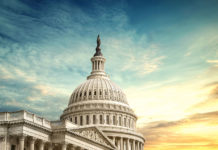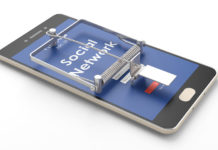House members summoned Facebook’s Mark Zuckerberg to Washington, D.C., and grilled him — harshly — about his plan to create a new currency, Libra.
“Why should we trust you?!” asked Congressman Mike Doyle.
I liked it when Zuckerberg said, “I actually don’t know if Libra’s going to work, but I believe that it’s important to try new things.”
He was right. That’s very important.
The Libra would make it easier to transfer money anywhere in the world. It also promises stability. Its value would be based on a basket of currencies from different countries, which would protect Libra owners from inflation in any one country.
It’s an idea that deserves a try.
But it may never be tried because the clueless politicians’ threats of punitive regulation scared off many of its supporters.
Politicians want to crack down on Libra “because they’re threatened by it,” says tech reporter Naomi Brockwell in my new video. “This is going to be competition for the U.S. dollar. Government doesn’t like competition.”
Governments also like to control any money that we might use.
“Want to send money to Russia to a family member; it’s going to be censored. You want to send money to a relief effort in Venezuela; it’s going to be censored,” says Brockwell. But if you use a cryptocurrency like Libra or Bitcoin, “your money will get through. That’s an incredibly powerful tool that gives people the freedom to spend their money where they want to spend it.”
Bitcoin is harder to stop than a currency like Libra would be because Bitcoin doesn’t emanate from one company or government mint. There’s no one owner of Bitcoin or most other cryptocurrencies.
“It is the first currency that is decentralized,” Brockwell points out. “That’s why it’s still around, because they haven’t been able to have these hearings, haven’t been able to call the CEO of Bitcoin and say, ‘cease and desist!’ There is no server to unplug, no company to shut down, no CEO to throw in jail, so it persists! That’s really exciting.”
Digital currencies “live” on thousands of individuals’ computers, so no government can stop them by pressuring any one company.
That’s a reason they’re valuable.
When Bitcoin started, it was worth virtually nothing. But two years ago, the price of one bitcoin reached $19,891. Then it crashed to $3,192. As I write, the price is $9,390.
That volatility deters many people from using Bitcoin as money, but to those of us who don’t trust governments, Brockwell points out: “It is the only suitable money for free people.”
Of course, many disagree.
“I think it’s a gigantic classic pump and dump scheme,” says investor Peter Schiff. “There’s nothing to give Bitcoin value.”
It’s “a bubble,” vulnerable to attacks from governments. “They can get banks and financial institutions to make it very difficult for Americans to use it.”
Schiff doesn’t claim we should count on dollar bills because he doesn’t trust politicians either. He suggests people buy gold to hedge against politicians’ irresponsibility.
“Gold has worked for thousands of years,” says Schiff. Unlike Bitcoin, “gold has actual value. A huge industry needs gold: jewelry … consumer electronics, aerospace and medicine.”
I’ve hedged against the dollar by buying both gold and Bitcoin. My Bitcoin investment did better. But Schiff says I’m a fool if I don’t sell it now.
I don’t know which way prices will move. But I know that it’s good to have alternatives to government-created currencies. The dollar’s value is only backed by politicians’ promises. I sure won’t trust those.
Even when currency is stable, government can use its power over currency to censor people.
“The government decided that they didn’t want WikiLeaks to receive donations, so they froze transactions,” observes Brockwell. But they couldn’t stop Bitcoin.
She says government has had “a monopoly on the money supply for a very long time, and now consumers finally have a choice. You can send bitcoin peer-to-peer to someone on the other side of the world almost instantly at very low cost, and it can’t be censored. That’s incredibly powerful.”
It is.
Alternatives to government monopolies are very good things.






























